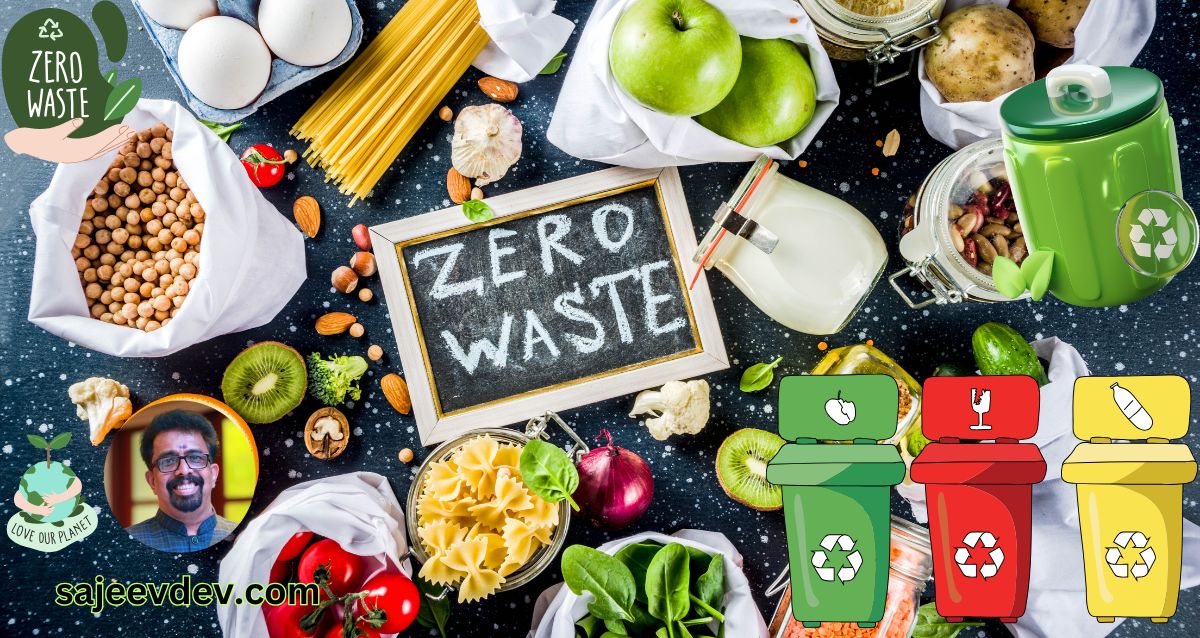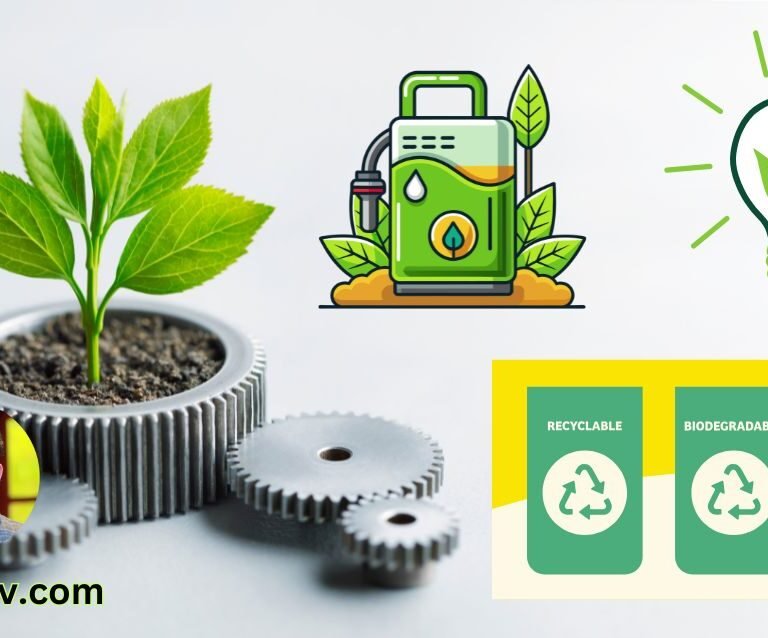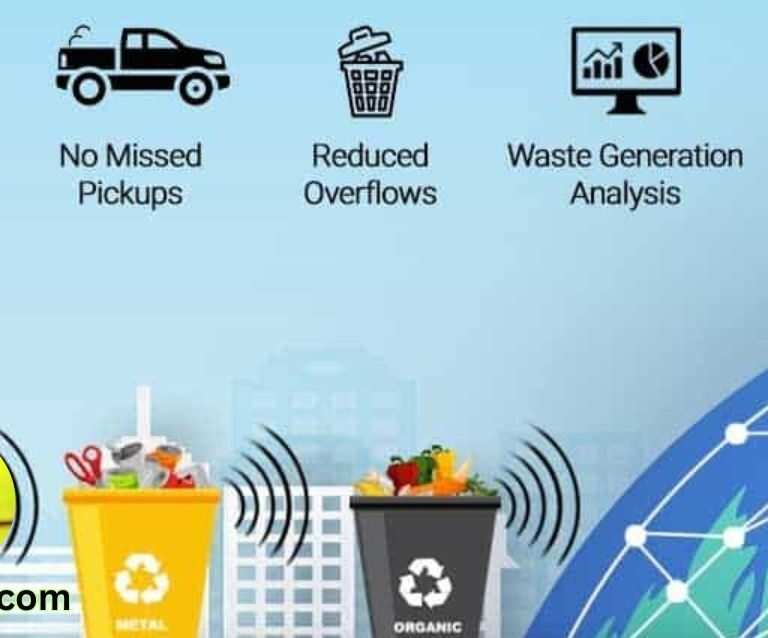Bio-waste management refers to the systematic approach to handling organic waste generated from various sources, including households, industries, and commercial establishments
Bio-waste management refers to the systematic approach to handling organic waste generated from various sources, including households, industries, and commercial establishments. This type of waste typically consists of kitchen scraps, garden waste, paper products, and other biodegradable materials. The effective management of bio-waste plays a pivotal role in enhancing environmental sustainability, improving soil health, and promoting a circular economy.
As the global population continues to expand, the generation of bio-waste has increased significantly, leading to numerous environmental challenges. One of the primary issues stems from improper disposal methods, which may include dumping organic waste in landfills. Such practices not only contribute to greenhouse gas emissions but also result in soil degradation, water contamination, and disruptions in local ecosystems. Therefore, the need for efficient bio-waste management systems is more crucial than ever.
The significance of bio-waste management extends to soil enhancement. When organic waste is processed correctly through composting or anaerobic digestion, it can be transformed into nutrient-rich fertilizers that contribute to improved soil quality. These practices not only help in maintaining soil health but also serve to prevent the depletion of essential nutrients that are vital for plant growth. Moreover, promoting the recycling and reuse of organic materials aligns with the principles of a circular economy, where waste is viewed as a resource rather than a burden.
Despite the evident benefits, bio-waste management faces numerous challenges. Public awareness regarding proper disposal methods remains low, and many communities lack access to effective waste management infrastructures. Furthermore, policy frameworks relating to bio-waste recycling are often inadequate, hindering the progress needed to adopt sustainable practices widely. By understanding these challenges, society can begin to explore viable solutions aimed at fostering environmental sustainability and soil health.
Importance of Segregation at Source
Segregation at source is a pivotal step in bio-waste management, serving as the foundation for effective waste processing. It refers to the practice of separating organic waste—such as food scraps and plant materials—from non-biodegradable waste—comprising plastics and metals—right at the point of generation. This initial division is crucial because it directly influences the efficiency of subsequent waste treatment processes and ultimately impacts the environment. When organic waste is isolated from other types of refuse, it can be processed through composting or anaerobic digestion, significantly reducing the volume of waste sent to landfills and minimizing methane emissions, a potent greenhouse gas generated in landfills.
The benefits of effective segregation extend beyond environmental impact. For households, proper separation allows for the production of nutrient-rich compost that can enrich garden soil, promoting plant health and reducing the need for chemical fertilizers. Restaurants and food businesses, by practicing segregation, can decrease operational waste disposal costs while also contributing to sustainable practices in their communities. Public spaces also play a critical role; implementing bins dedicated to organic waste encourages citizens to participate in waste reduction efforts, fostering a culture of sustainability.
To facilitate segregation, practical measures can be adopted. Households can designate clearly labeled bins for organic and non-organic materials, making it easier for family members to participate in proper waste disposal. Restaurants might consider staff training programs to instill the importance of waste separation and employ signage to inform customers. Similarly, public spaces can benefit from strategically placed composting bins alongside recycling containers to promote responsible waste management habits among visitors. By prioritizing segregation at source, we can enhance the overall effectiveness of bio-waste management strategies while contributing positively to environmental health and soil vitality.
Composting as a Sustainable Solution
Composting is a highly effective method for managing bio-waste that transforms organic materials into nutrient-rich soil amendments. At its core, composting involves a natural decomposition process facilitated by microorganisms, which break down organic waste, such as food scraps and yard trimmings, into humus. This biological activity not only diverts waste from landfills but also reduces greenhouse gas emissions associated with organic waste decomposition in anaerobic landfill conditions.
Starting a composting system can be straightforward and accessible to individuals and communities alike. To begin, one can set up a compost bin either outdoors or indoors, depending on space constraints. Ideally, a compost bin should provide sufficient airflow and moisture while being kept at a suitable temperature to encourage microbial activity. Common materials suitable for composting include kitchen waste like fruit and vegetable peels, coffee grounds, and eggshells, along with green materials such as grass clippings and brown materials like dried leaves or cardboard. Maintaining a balance between these “green” and “brown” materials is essential for effective decomposition.
The environmental benefits of composting extend beyond waste reduction. Compost enriches the soil structure, boosts its nutrient content, and enhances overall soil health. This leads to improved water retention and increased microbial diversity, which are vital for healthy plant growth. Furthermore, using compost can diminish the need for chemical fertilizers, which can have detrimental effects on ecosystems and human health when over-applied. Community composting initiatives also foster environmental stewardship among residents and can be a catalyst for engaging more people in sustainable practices.
In conclusion, incorporating composting into waste management strategies presents an effective approach to bio-waste management, fostering both environmental health and soil enrichment. By implementing and promoting composting practices, communities can significantly reduce their ecological footprint while enhancing agricultural productivity and biodiversity.
Innovative Technologies in Bio-Waste Management
As the global emphasis on sustainability strengthens, innovative technologies in bio-waste management have emerged as pivotal tools for transforming organic waste into valuable resources. Among these technologies, anaerobic digestion stands out as a highly effective method for converting bio-waste into biogas, a renewable source of energy. This process occurs in an oxygen-free environment, where microorganisms break down organic materials, resulting in methane and carbon dioxide. The biogas produced can be utilized for heating, electricity generation, or as a vehicle fuel, significantly reducing reliance on fossil fuels.
Bio-digesters, which are specialized systems used in anaerobic digestion, offer remarkable versatility for both rural and urban applications. In rural areas, these systems enable farmers to manage livestock waste efficiently, converting it into energy that can power farm operations. Urban settings benefit from centralized bio-digestion facilities that process municipal organic waste, effectively decreasing landfill usage and greenhouse gas emissions. These developments contribute significantly to the circular economy by ensuring that waste materials are repurposed rather than discarded.
Moreover, the implementation of innovative technologies in bio-waste management does not stop at energy production. The residual material, known as digestate, can be transformed into a nutrient-rich fertilizer, promoting soil health and reducing the need for chemical fertilizers. This integral role in soil enhancement further solidifies the importance of adopting modern waste management technologies.
In summary, the advancements in anaerobic digestion and bio-digester technology not only provide a pathway to clean energy generation but also align with broader environmental objectives. Their adoption across various settings signifies a crucial step towards minimizing environmental impact while fostering sustainable practices in bio-waste management.
Community Engagement and Education
Community engagement plays a pivotal role in effective bio-waste management and is essential for promoting sustainable practices within local environments. Raising awareness and educating the public about bio-waste separation, composting, and responsible waste management are crucial steps towards enhancing community participation. Initiatives aimed at engaging residents can significantly reduce the overall bio-waste produced and improve soil health through composting processes.
One effective strategy for fostering community involvement is through dedicated workshops and seminars. These events can provide valuable information regarding the benefits of bio-waste separation, sustainability, and the nutritional benefits of compost for gardening and agriculture. Collaborating with local schools, community centers, and environmental organizations to host these educational programs can help ensure diverse participation and reach various demographics within the community.
In addition to workshops, community clean-up events focused on bio-waste management can create a sense of ownership and responsibility among residents. By organizing group activities where participants are encouraged to collect organic waste for composting purposes, communities can experience firsthand the positive impact of reducing bio-waste alongside the camaraderie that comes from collective efforts.
Successful initiatives, such as neighborhood composting programs or community gardens that utilize compost generated by residents, demonstrate the power of collaboration in bio-waste management. In these projects, community members are often empowered to better understand the processes involved while witnessing tangible benefits in their local environments.
Overall, community engagement and education are vital for fostering a culture of environmental stewardship. When residents are knowledgeable about the significance of bio-waste separation and the advantages of composting, they are more likely to adopt these practices, thus contributing to an overall reduction in bio-waste generation and promoting healthier soil ecosystems.
Policy and Regulatory Framework
Effective bio-waste management is significantly influenced by the policies and regulations established at various levels of government. These frameworks serve as guidelines that shape how bio-waste is handled, processed, and recycled, ultimately impacting both environmental sustainability and soil health. Nationally, governments often create specific legislation aimed at reducing waste generation and enhancing waste management practices. This can include regulations that mandate separation of organic waste from non-biodegradable materials, thereby promoting effective recycling and composting. Additionally, many countries have implemented targets for reducing landfill use, which inadvertently encourages bio-waste recycling.
At the local level, municipalities play a crucial role by implementing ordinances that support local composting initiatives and provide incentives for businesses and residents to participate in bio-waste reduction programs. Many local governments offer subsidized compost bins, educational campaigns, and partnerships with non-profit organizations to enhance community engagement in sustainable practices. Such initiatives not only reduce bio-waste but also provide a source of organic material that can be used to amend local soils, thereby improving soil health and fertility.
On an international scale, organizations such as the United Nations Food and Agriculture Organization (FAO) advocate for the development of frameworks that promote sustainable bio-waste management techniques worldwide. These efforts often center on sharing best practices and providing funding and technical assistance to countries striving to improve their bio-waste management processes. In addition, international agreements can aid in monitoring progress and ensuring compliance with environmental standards, ultimately promoting sustainable agricultural practices while reducing the ecological footprint of bio-waste.
In conclusion, a robust policy and regulatory framework is essential for promoting effective bio-waste management. By establishing clear guidelines, providing incentives, and fostering international cooperation, governments can significantly enhance bio-waste management practices, leading to reduced environmental impact and improved soil health.
Economic Benefits of Bio-Waste Management
Effective bio-waste management has emerged as a crucial element in fostering economic sustainability and promoting environmental health. Households and businesses can achieve significant cost savings through proper bio-waste separation and recycling. By diverting organic materials from landfills, entities can reduce disposal fees while lowering the overall waste management costs. This reduction not only alleviates financial burdens on families and companies but also contributes to a more efficient waste disposal ecosystem.
Furthermore, the bio-waste management sector plays an integral role in job creation. As the demand for recycling programs and waste management services increases, new employment opportunities arise in various sectors, including organic recycling, composting facilities, and energy production from bio-waste. These jobs often require a skilled workforce, leading to enhanced training and educational programs that can raise community employment levels and foster economic development. The collaborative efforts within the sector also have the potential to improve local economies by generating additional income and fostering a circular economy.
Another significant economic advantage of bio-waste management lies in its potential to generate income through the production and sale of compost and biogas. Composting organic waste transforms it into nutrient-rich soil amendments that can be sold to farmers, landscapers, or gardening enthusiasts, thus creating a sustainable revenue stream. Similarly, bio-waste can be converted into energy through anaerobic digestion, providing clean electricity and heat that can be sold back to the grid, further contributing to economic gains.
In conclusion, by implementing effective bio-waste management practices, households and businesses not only capitalize on cost savings but also contribute to job creation and income generation, underscoring the wider economic benefits of sustainable waste management strategies.
Case Studies of Successful Bio-Waste Management
Several cities and regions worldwide have successfully implemented bio-waste management strategies, showcasing innovative approaches that other communities can adopt. One notable example is San Francisco, California, which has instituted a comprehensive organics diversion program since 2009. This initiative mandates that all residents and businesses separate compostable materials from landfill waste. By efficiently utilizing curbside compost collection and providing educational resources, San Francisco achieved a diversion rate of approximately 80% of its waste, significantly reducing landfill contributions and promoting soil health through composting.
In a different region, the city of Capannori in Italy developed a successful model for managing organic waste. The municipality encouraged households to separate their bio-waste, which is collected separately and transformed into compost at a local facility. This initiative not only reduced waste volume but also created valuable organic fertilizer for local farms. The positive impact on agriculture highlighted the benefits of bio-waste recycling in enhancing soil fertility while fostering community participation in sustainability efforts.
Another compelling case can be found in the Indian state of Kerala, where local governments have embraced decentralized bio-waste management systems. Many communities adopted household-level composting and biogas systems that convert food scraps into energy and organic fertilizers, thereby decreasing the amount of waste produced. This grassroots approach empowered citizens to take responsibility for their waste while significantly mitigating environmental impacts. The initiative not only provided clean energy but also improved local agriculture by supplying nutrient-rich compost to farmers.
These case studies illustrate the diverse strategies employed across different regions to tackle bio-waste management challenges. The successes seen in San Francisco, Capannori, and Kerala emphasize the importance of community involvement, education, and innovative techniques in promoting sustainable practices. Lessons learned from these initiatives can serve as valuable models for other cities aiming to enhance their bio-waste management approaches and reduce their environmental footprints.
Effectively managing bio-waste is a crucial component in fostering environmental sustainability and enhancing soil health
Effectively managing bio-waste is a crucial component in fostering environmental sustainability and enhancing soil health. As society continues to grapples with increasing waste generation and environmental degradation, prioritizing bio-waste management becomes paramount. Through proper composting, recycling, and utilization of organic waste, we not only divert waste from landfills but also enrich the soil, reduce carbon emissions, and contribute to a healthier ecosystem.
Communities play a significant role in implementing effective bio-waste management strategies. By embracing practices such as community composting initiatives and organic waste collection programs, individuals and local groups can lead the way in reducing their ecological footprint. Furthermore, educational campaigns aiming to raise awareness about the benefits of bio-waste management can empower citizens to adopt sustainable practices at home and within their neighborhoods.
Policymakers also have a critical role to play in promoting effective bio-waste management. By developing regulations that encourage organic waste treatment and supporting research into innovative recycling technologies, governments can pave the way for a more circular economy. Establishing incentives for businesses that adopt sustainable practices can further stimulate the transition towards more environmentally responsible operations.
In conclusion, the journey towards better bio-waste management requires collective action from individuals, communities, and policymakers alike. It is essential that all stakeholders understand their responsibility in this endeavor. Each small effort contributes to a larger goal—reducing environmental impact and promoting soil health. Let us work together to improve our bio-waste practices, ensuring a sustainable future for generations to come. Take action today by learning about composting, advocating for community initiatives, or supporting policies that prioritize environmental well-being.









